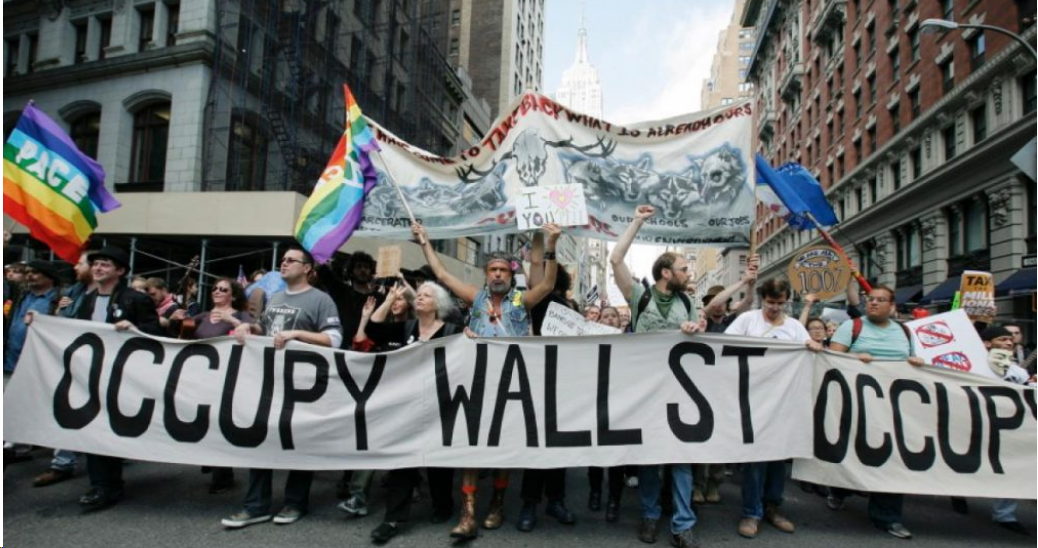Chancellor Jeremy Hunt has said ‘there is no more money’ to fund the estimated £5bn needed to fund pay deals negotiated in the public sector after months of strikes. This is despite nearly all public sector deals being well below the inflation rate, i.e., real pay cuts.
This cynical move is meant to divide workers by blaming people like NHS and local council staff, as well as transport workers and civil servants, for further crushing NHS and council services.
At the same time, Michael Gove’s mendaciously named ‘Levelling Up’ department is handing back to the Treasury £1.9 billion earmarked for relieving the housing crisis because no projects are designated for this cash!

The claim that there is ‘no money’ is a gigantic fraud. Energy corporations, online retailers, supermarkets, and fast food companies are now making vast profits and paying little or no tax. The most egregious examples are the oil companies, which cash in on rising energy prices.
- BP made £21 billion last year, with £4.7 billion in the last quarter. It said in advance that it expected to pay £2.5 billion in taxes under the ‘windfall tax’ scheme, but ended up paying about £1 billion in tax because of exemptions due to alleged ‘investment’ in the UK.
- Shell made £31 billion last year, with more than £7 billion in the last quarter. Under the ‘windfall tax’ scheme, it paid a paltry £134 million in taxes to the UK government.
However, some major companies pay almost no tax in the UK. Amazon had total sales of more than $34 billion in the UK last year but paid no corporation tax because it is registered as a company headquartered in Luxembourg, where taxes are minimal. The company claims that it paid more than £660 million in tax, but this includes employees’ national insurance contributions.
High-tech companies like Microsoft and Apple also paid minimal tax because they are registered as Irish companies.
McDonald’s is another Luxembourg-based company. It has organised its finances to pay minimal tax on its billions of euros in European profits, as exposed by War on Want.
These are only some of the many outrageous examples of how companies swindle public finances and are able to do this because the Conservative government encourages it.
One of the key methods for handing tax back to capitalist Leviathans is the tax break for ‘investment’, real or imagined. So Amazon was handed a huge tax break because of the giant warehouses it is building. Oil companies got huge tax credits because of planned investment; exactly where and what these are is unclear, but the suspicion must be that they are for investment in new North Sea oilfields.
The world’s five biggest investment banks—Morgan Stanley, JP Morgan, Goldman Sachs, Citicorp, and Bank of America Merrill Lynch—paid no or little tax in the UK last year despite more than £3.5 billion in profits. Just for comparison, JP Morgan made global profits of more than $40 billion last year, and Goldman Sachs made $14.4 billion.
Tax credits increase the huge cash piles of major corporations and the amount available for dividends and dealings on the financial markets. The biggest international hi-tech company, Apple, has cash or cash equivalents of $21,000 billion (that is not a typing error) and more than $31,000 billion in ‘marketable securities’. In US usage, this means a total of more than $51 trillion. [1] This vast cash pile can finance Apple’s own investments in products or retail outlets, or it can be loaned on the financial markets. The biggest corporations are effectively becoming investment banks.
Since privatisation in 1988, UK water companies have splashed out more than £600 million on dividends to investors, leading to massive underinvestment in infrastructure. The result is bankruptcy at Thames Water and polluted rivers all over the UK.
Defence spending is increasing this year from £7.4 billion in 2022 to £11 billion. The increase is largely explained by the more than £2.5 billion allocated for equipment and training for Ukraine’s armed forces.
The key takeaways are that British workers, especially those who are income deprived, who are often single parents or disabled people, but also the millions on zero-hour contracts or poverty wages, are suffering high prices and income deprivation because the Conservative government is effectively an agent for transnational finance and the transnational capitalist class [2], which doesn’t mean they are all ‘foreigners’ (see footnote). Millions have endured winter months without heating, a lack of food and other basics, and increased health problems to fund mega-corporations and banks.
Just one step—a new and effective windfall tax on the fossil fuel behemoths, coupled with an effective regulation of profits—could solve the poverty of millions. All-round, serious levels of taxation could solve the poverty crisis.
To solve the housing crisis, it takes one central move. There are 670,000 empty houses, many of them deliberately kept empty by landlords as investments. Empty houses should be renovated and brought back into use. Promised social housing and affordable rents are needed to enable people to have a roof over their heads. The squalid ‘hotels’ could become a thing of the past for refugees and asylum seekers, some of whom are facing imminent homelessness, as the government removes funding for ‘temporary’ accommodation despite having no worked-out alternative other than appealing to people to take Afghan asylum seekers into their houses.
House building and renovation is a key opportunity to build energy-efficient houses as a contribution to reducing greenhouse gases.
Workers, all income-deprived people, and small businesses are suffering from a government turning all public services into a giant suction pipe for hoovering up disposable income and creating mass poverty.
‘There is no money’ is a giant lie. No one should be taken in by it. And the Labour leadership should denounce it. Don’t hold your breath. Because addressing poverty means confronting the ruling class and taking anti-capitalist measures like re-nationalisation of water, the railways, and other services, taxing wealth and profits made in the UK, and facing down the clamour from the right-wing media that this would cause. It would mean a massive political mobilisation of those suffering from the crisis—the overwhelming majority.

There are at least 3,400 food banks in the UK, used by an estimated 2.1 million people. There are 4.2 million children growing up in poverty.
Footnotes
[1] Brits use the old system where a billion is a million million.
[2] The idea of a transnational capitalist class is not meant to imply that the world’s capitalists have become one class. This term refers to the increasingly multinational finance capitalists and international megacorporation which includes the sections of the capitalist class in all the main imperialist countries, including China.
Art (53) Book Review (121) Books (114) Capitalism (65) China (80) Climate Emergency (98) Conservative Government (90) Conservative Party (45) COVID-19 (44) Economics (40) EcoSocialism (55) Elections (83) Europe (46) Fascism (56) Film (49) Film Review (68) France (70) Gaza (60) Imperialism (98) Israel (124) Italy (46) Keir Starmer (52) Labour Party (111) Long Read (42) Marxism (48) Palestine (169) pandemic (78) Protest (152) Russia (340) Solidarity (142) Statement (48) Trade Unionism (141) Ukraine (346) United States of America (132) War (368)
Latest Articles
- Chapter 1 Social Inequality and Social Struggle Throughout History I. Social inequality in contemporary capitalist society A pyramid of wealth and social power exists in all capitalist countries. In the USA, a Senate Commission has estimated that less than one per cent of American families possess 80 per cent of all shares in companies, and that 0.2 per cent of families possess more than … Read more
- From class society to communism: introductionThis introduction to Marxism is the result of numerous experiences in giving education to young militants at various times in the last 15 years. It arises out of such pedagogical needs as we have noticed, and these can vary from country to country, from milieu to milieu. This introduction in no way pretends to be … Read more
- The social cost of China’s resistance to Trump’s tariff war Trump’s tariffs bullied the whole world. Both Canada and China reacted strongly against them, most countries did not. An Dexin and Au Loong-Yu investigate.
- Fourth international Youth Camp – can you help fund it?Fund the future of revolutionary socialism! An appeal from Anti*Capitalist Resistance
- Neofascism and Climate ChangeWhat is driving neofascist movements to question, to varying degrees, the reality of climate change, or at least its connection to human behaviour?asks Gilbert achcar




